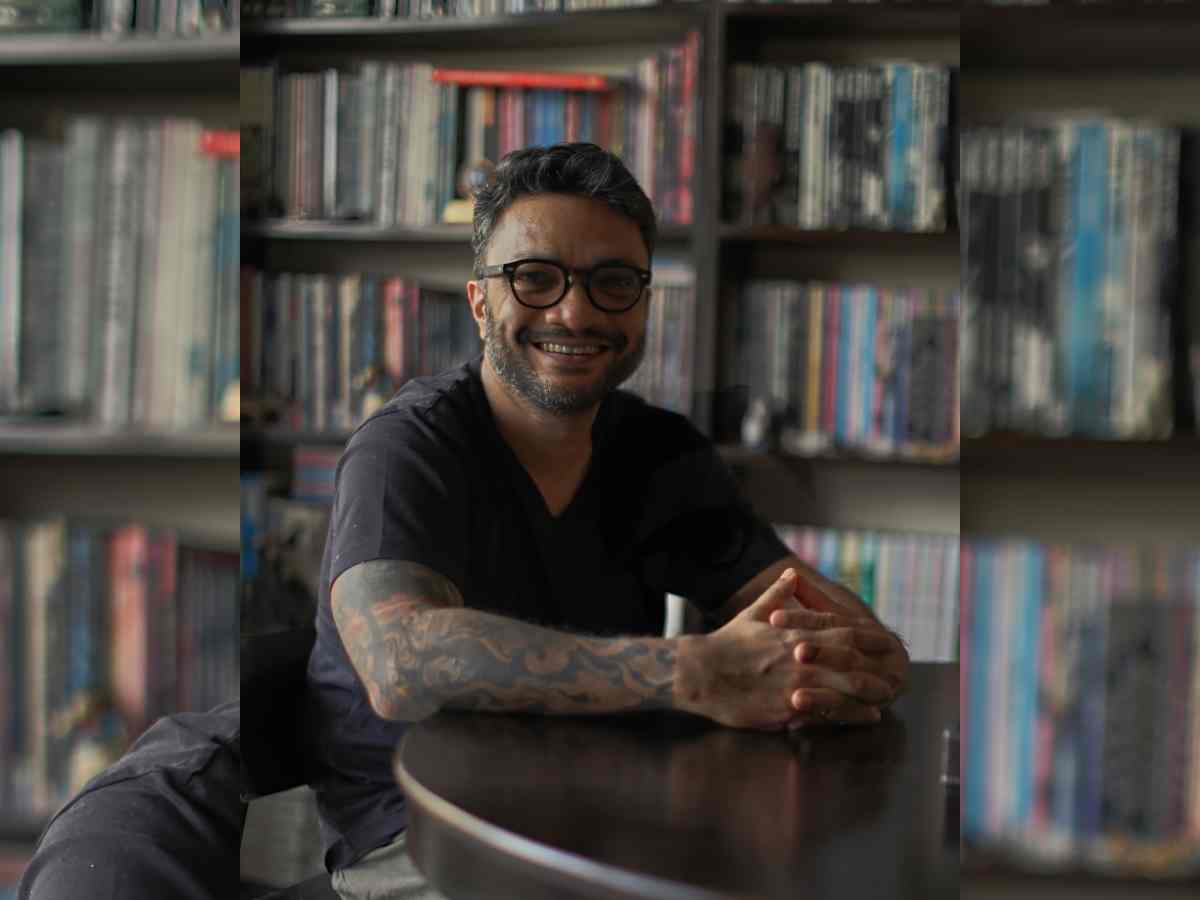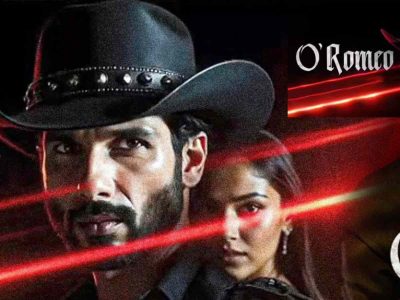Sector 36 is a rare film that grips its audience with immediacy and intensity. Garnering over 5 million views on Netflix within just a few days, the crime thriller has quickly become a cultural phenomenon, and its relevance feels inescapable.
Written by Bodhayan Roychaudhury, the film draws inspiration from one of India’s most chilling true crime cases—the Nithari serial murders. Set against a harsh urban backdrop, it follows the investigation of a series of disappearances, uncovering layers of systemic corruption, class divide, and the unsettling ordinariness of evil.
In an interview with Patriot, Bodhayan Roychaudhury opens up about his motivations, the process of crafting a psychological thriller, and the delicate balance between storytelling and social commentary.
When asked why he chose to base Sector 36 on the gruesome killings, Roychaudhury pauses, reflecting on the weight of the subject, “Sector 36 isn’t based on any one case in particular, but through its story, hopefully, tries to answer why such crimes ever take place. This story was a random choice; and my desire was not just to journal the crimes, but more importantly, try and dive into the mind of a killer.”
The crime had its own distinctive dynamics, which allowed Sector 36 to delve into the layers of complexity within it. Cases such as Nithari and others served as a prompt for Bodhayan Roychaudhury to explore deeper themes of crime, class disparity, and how societal systems function.
Balancing that kind of grim reality with cinematic storytelling is no easy feat. Roychaudhury describes it as a tightrope walk, ensuring that the human element remained central even as the narrative touched on broader societal issues.
“Sector 36 isn’t offering a morality lecture,” he says. “It’s simply reflecting what already exists in society. We’re all aware of these things; it’s just that when we see them through film, it resonates more deeply.” He adds, “From the film’s beginning with Newton’s third law of motion and the cockroach analogy, to the end where Ram Charan Pandey’s futile death changes nothing, the narrative doesn’t pause for social commentary. Instead, it’s seamlessly woven into the plot and characters. I believe social commentary should never feel separate—it should naturally integrate into the storytelling.”
The screenplay is imbued with a potent critique of India’s class divide, something Roychaudhury felt was essential to the story. “When you look at cases like these, there’s an undeniable intersection of crime and social injustice. The victims were largely from lower-income backgrounds, and the response—or lack thereof—reflects that. I wanted to show that class isn’t just a backdrop to the story; it’s central to understanding why and how these crimes were allowed to continue.”
Also Read: Embrace perseverance, not fame: NSD Graduate Zakir Hussain urges aspiring actors
One of the film’s most compelling aspects is Vikrant Massey’s portrayal of Prem Singh and Deepak Dobriyal’s performance as Ram Charan Pandey.
Roychaudhury notes, “I don’t believe in characters being purely good or evil. In my stories, you’ll always find characters who are raw and real because that’s how people are in life—flawed, complex, and multifaceted. We all have a dark side and a good side. In Prem Singh’s case, while his actions are abhorrent, his descent into psychopathy stems from a broken moral compass, even though he still tries to do things for his family.”
He also says, “As writers, we often leave fragments of ourselves in the characters we create, challenging ourselves to explore complex emotions—how would we act as a psychopath, or after a broken heart? This requires a deep understanding of society and keen observation.”
On collaborating with Massey and Dobriyal, Roychaudhury accentuates, “Vikrant is an exceptional performer, as is Deepak Dobriyal. Having such talent on board, under Aditya Nimbalkar’s direction, is a privilege. Interestingly, Vikrant surprised me when he expressed interest in playing Prem Singh, a role so unlike his usual ‘good boy’ persona. His ability to embody this character, so different from someone like Manoj Kumar, has truly captivated audiences.”
Sector 36 marks Roychaudhury’s debut, a remarkable feat given he’s only three years into the industry. With an MBA from the SP Jain Institute of Management and Research in Mumbai, Roychaudhury previously worked at prominent companies like Nestlé and Hindustan Unilever.
Reflecting on his transition to the film industry, he shares, “I had just finished writing a pilot for my series and was thinking about how to approach writing a film. I opened my laptop and simply began. Incredibly, the story picked me I suppose, though perhaps it had lingered in my subconscious for years.” He expresses gratitude to Maddock Films and Netflix for their unwavering support in bringing his vision to life.
Also Read: I just need one big season to turn it around: Himmat Singh
Bodhayan Roychaudhury is also gearing up for his second film, Talaankhon Mein Ek, featuring Vikrant Massey and Rashi Khanna—a poignant exploration of a relationship in turmoil, which also marks Roychaudhury’s directorial debut. Reflecting on the swift process behind this project, he says candidly, “I finished writing the script in a week. I was fortunate that Vikrant liked it, and the film came to fruition.”
Roychaudhury concludes with a thought-provoking comparison: “If a director is the father of a film, then the writer is the mother. If the director’s name is celebrated with applause, why not the writer’s as well?”




